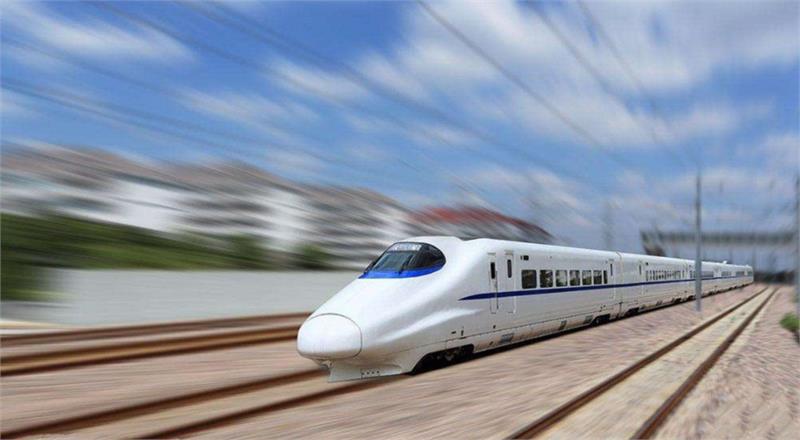In our daily travel, represented by subway, high-speed rail, and other rail transit vehicles, they have always been the best choice for convenient transportation. With the rapid development of rail vehicles, various fasteners in rail transit vehicles play a crucial role in ensuring the safe and stable operation of trains. Today, I will take you all to get to know and understand these rail car fasteners that play an important role in rail transit.
1、 Overview of Rail Car Fasteners
Rail transit vehicle fasteners refer to specialized fasteners used to fix and connect various components of rail transit vehicles. These fasteners have a wide variety of types and can be divided into bolts, nuts, rivets, pins, etc. according to different application scenarios and requirements. Their main function is to ensure the stable connection of various components of the train, improve operational safety and comfort.
The connection method of structural components of rail transit vehicles, in addition to welding and riveting, mainly adopts threaded connection. The threaded connection method not only meets the necessary functions for vehicle operation, but also ensures the interchangeability requirements of important components of the vehicle body structure. Due to the unique structure, heavy equipment such as the transmission, brake air cylinder, and water tank on the vehicle are all installed on the vehicle chassis using high-strength bolts. For example, the high-speed multiple unit bogies with 8-car formation in China all use high-strength bolts of grade 8.8 or above, with specifications such as M16, M20, M24, and M36. The total number of bogies in the entire train reaches about 650.
2、 Characteristics of Rail Car Fasteners
High strength and reliability: Rail car fasteners need to withstand huge operating loads and impact forces, so they must have high strength and reliability to ensure that the train maintains stability in long-term operation.
Wear resistance and corrosion resistance: Rail car fasteners need to work in various complex environments, so they need to have good wear resistance and corrosion resistance to extend their service life.
Safety: Rail car fasteners must comply with relevant safety standards to ensure they do not fall off or break in emergency situations, ensuring passenger safety.
Easy to maintain: Rail car fasteners should be easy to install and disassemble for daily maintenance and repair.
3、 The Importance of Rail Car Fasteners
Rail car fasteners play a crucial role in train operation. They not only connect and fix various components of the train, but also directly affect the safety and stability of the train. Once there is a problem with the fasteners, it may lead to serious consequences such as derailment, damage, or personal injury of the train. Therefore, it is very important to choose high-quality rail car fasteners and regularly inspect and maintain them.
Ensuring train safety: Rail car fasteners are used to connect and fix various components of the rail vehicle, playing a crucial role in the safety and stability of the train. Once there is a problem with the fasteners, it may lead to serious consequences such as derailment, damage, or personal injury of the train.
Improving operational efficiency: The high strength and reliability of rail car fasteners can improve the operational efficiency of trains. For example, fasteners such as bolts and nuts can quickly and firmly fix various components of the train, reduce vibration and noise during operation, and thereby improve the comfort and efficiency of the train.
Enhance the durability of the train: Rail car fasteners have good wear and corrosion resistance, which can extend the service life of the train. For example, some special materials of fasteners can work in harsh environments, such as corrosion resistance, high temperature resistance, etc., to ensure the stable operation of trains in various environments.
Reduce maintenance costs: Rail car fasteners are easy to install and disassemble, making it convenient for daily maintenance and repair. By regularly inspecting and maintaining rail car fasteners, potential problems can be identified and resolved in a timely manner, reducing maintenance costs and downtime, and improving train utilization.
4、 How to choose suitable rail car fasteners?
When selecting the appropriate fasteners required in rail transit, the appropriate type should be selected based on the application scenario and vehicle requirements: according to actual needs, select rail car fasteners that are suitable for specific components and environments. For example, anti loosening nuts or vibration resistant rivets should be used in areas with high vibrations.
Considering load and safety: Based on the required load and safety requirements, it is recommended to choose a rail car fastener brand that has undergone strict quality testing and certification to ensure its performance and quality reliability.
Pay attention to wear and corrosion resistance: When selecting rail car fasteners, their wear and corrosion resistance should be considered to ensure long-term stable operation.
Consider maintenance convenience: Choose rail car fasteners that are easy to install and disassemble for daily maintenance and repair. At the same time, it should be noted that the selected rail car fasteners should be compatible with other components of the train and not have adverse effects. For example, the material of the fastener should match the material of the connecting components to avoid connection failure or damage due to material incompatibility.
5、 Summary
The importance of rail car fasteners as a key component to ensure the safe and stable operation of trains is self-evident. Understanding different types of rail car fasteners and their characteristics, and making reasonable choices based on actual needs, is of great significance for improving train safety and stability. At the same time, regular inspection and maintenance of rail car fasteners are also important measures to ensure safe train operation.
Post time: Nov-07-2023

